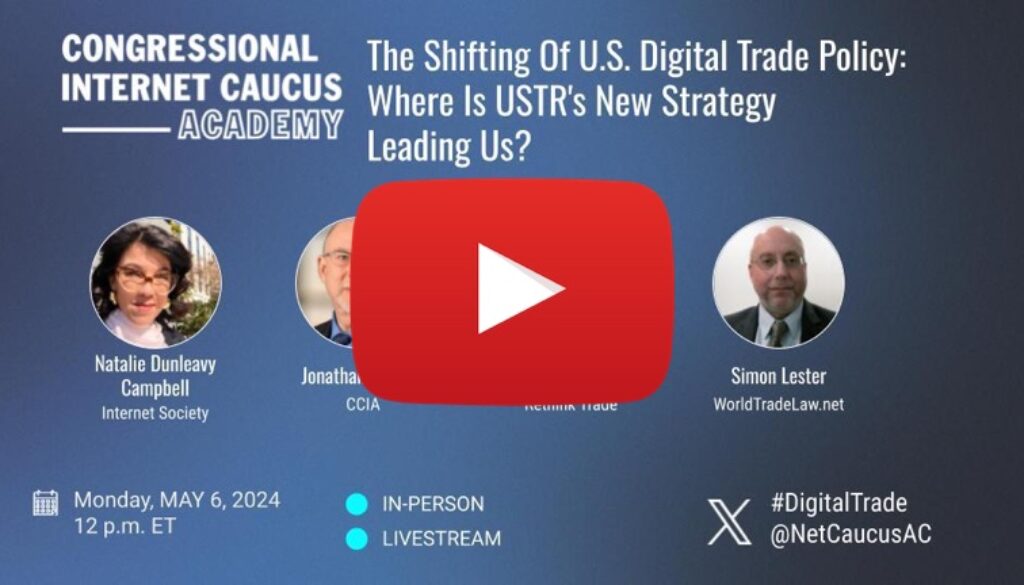For decades the U.S. has championed digital trade rules guided by its ethos that an open Internet will foster freedom of expression, ecommerce, and democracy across the globe. Recently, lawmakers like Senator Warren have expressed concern that large technology companies have exerted undue influence on previous trade rules and the rules need to be reigned in. In response, US Trade Representative Tai has modified USTR’s approach and the agency has withdrawn from certain World Trade Organization (WTO) provisions related to cross-border data flows and digital trade. This shift has sparked concerns about increasing digital protectionism, the impact on international data flow regulations, and the potential erosion of the open internet.
This panel brings together policymakers, industry leaders, and academic experts in front of an audience of congressional staffers and the public to examine the implications of this policy change. Discussions will cover the potential risks of data localization, challenges to digital sovereignty, and strategies to maintain a globally connected Internet. Panelists will offer insights on balancing security and privacy concerns with the need for a free and open digital ecosystem, as well as address and advise on how the U.S. can maintain leadership in promoting innovation and protecting user rights.
Key Questions for Discussion:
- What are the implications of the U.S. stepping back from WTO digital trade protections, and how could this influence the broader global digital trade landscape?
- How can U.S. policymakers navigate the shift toward digital protectionism and data localization while still advocating for an open, interconnected internet?

